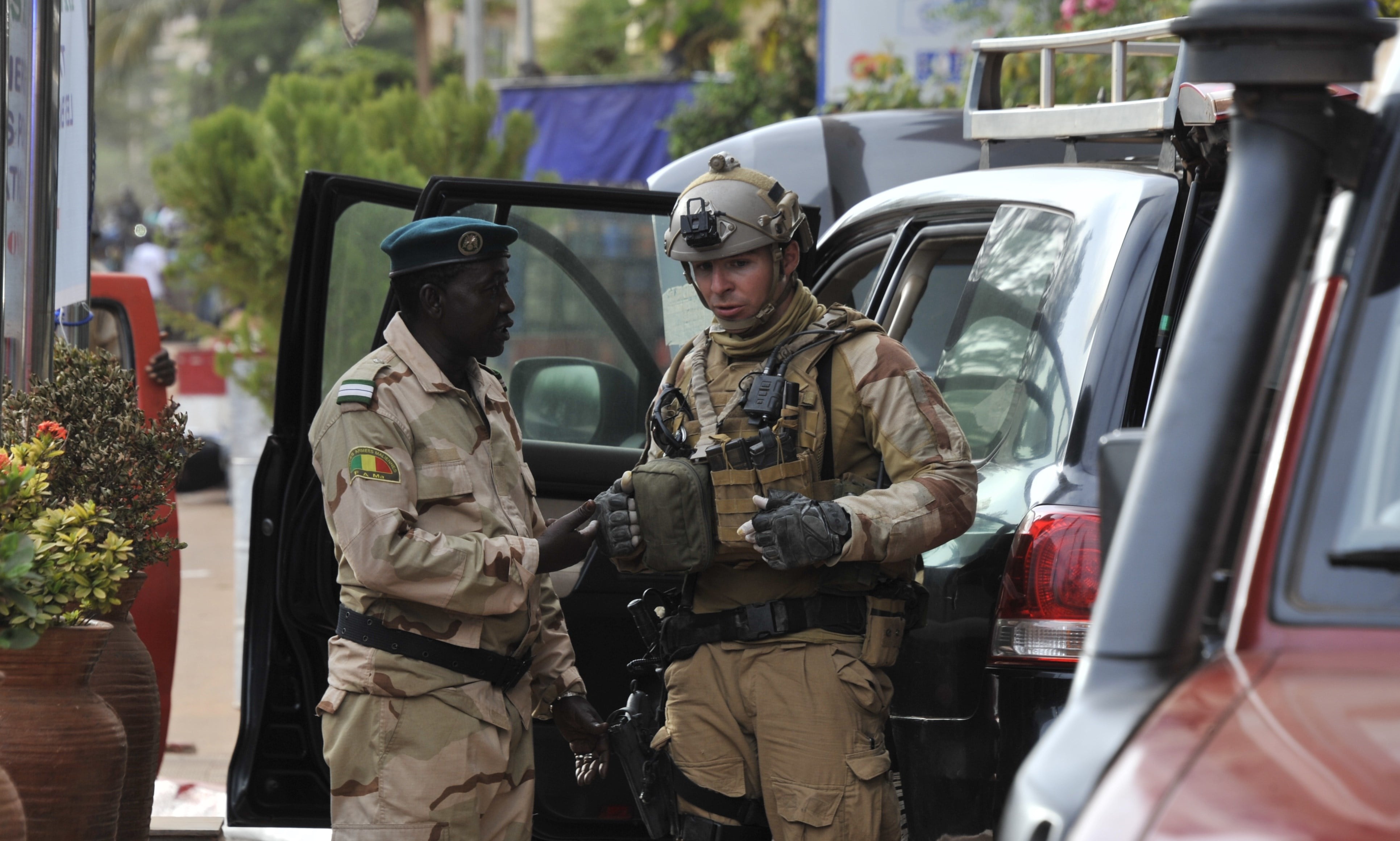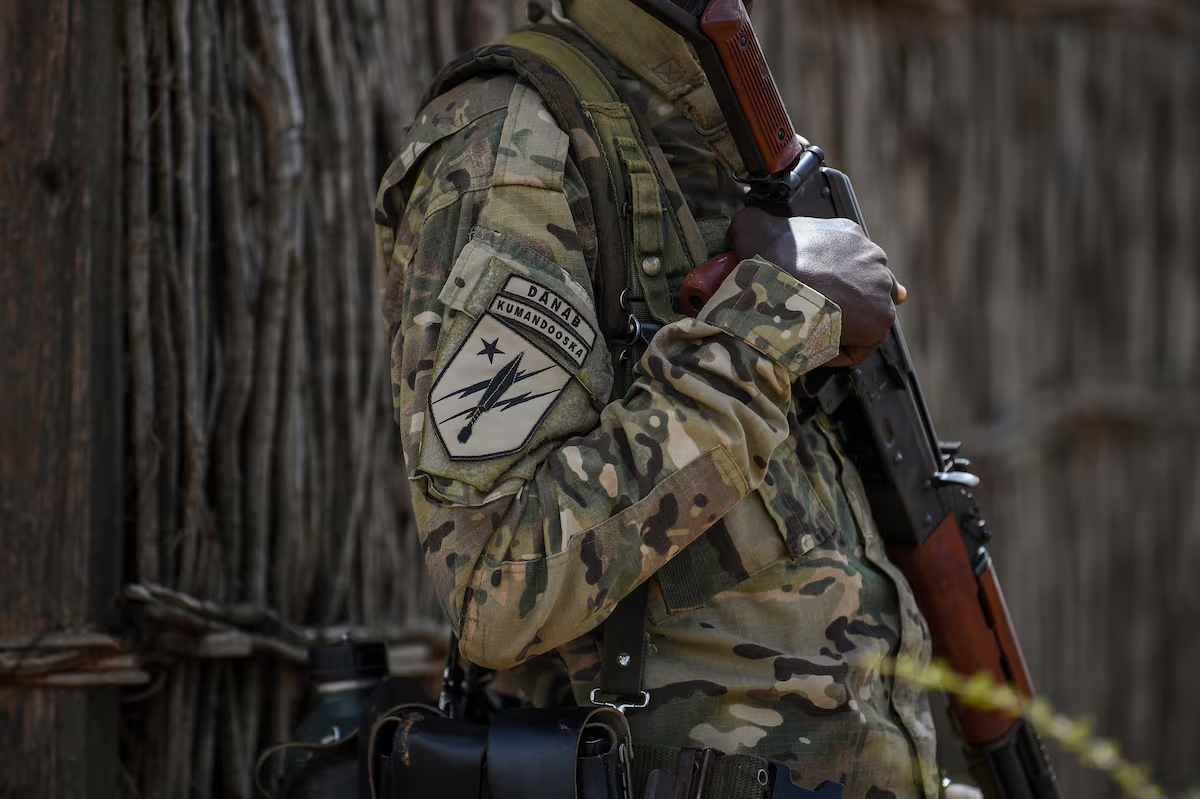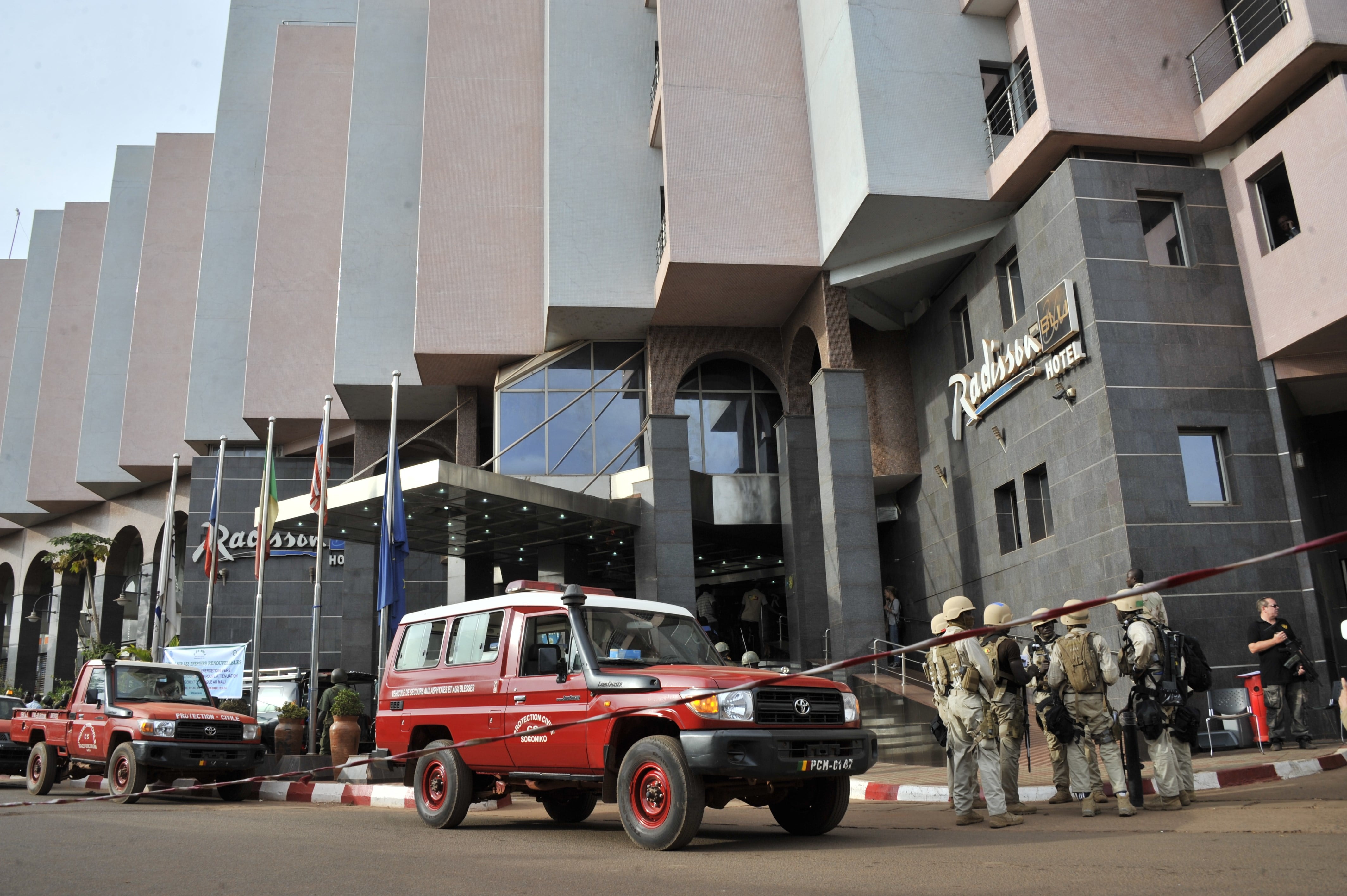An Army special operator received the second highest valor award for his actions during an overseas contingency operation nearly four years ago.
The operator received the Distinguished Service Cross for his actions on Nov. 20, 2015, a date that matches up with an infamous terrorist attack on the Radisson Blu hotel in Bamako, Mali, which also netted a Marine Raider the Silver Star.
At the time of the incident, Pentagon officials said that U.S. military personnel did not directly participate in the operation and left the clearing of the hotel to Malian forces. Although initial press reports suggested Joint Special Operations Command troops were involved in the response, defense officials said that was inaccurate at the time. The make-up and size of the force that responded remains unknown.
The award for the Army special operator was authorized by the secretary of the Army’s office in June 2018, but not previously publicized. Army Times is withholding the operator’s name for operational security reasons.
The soldier was “serving as a team leader operating against an enemy force in support of overseas contingency operations,” the citation reads. “Without regard for his own safety, [his] valorous actions, dedication to duty, and willingness to place himself in great personal risk for the protection of others was critical to the success of a sensitive operation.”
Army Special Operations Command could not comment directly on the award or its likely connection to the hostage rescue operation, during which a handful of gunmen went on a shooting rampage at the luxury hotel in Mali’s capital, seizing about 170 guests and staff.
The gunmen were linked to al-Qaida in the Islamic Maghreb, a growing terrorism threat throughout West and North Africa.
“Army Special Operations Forces are deployed to more than 60 countries around the world on any given day," Lt. Col. Loren Bymer, a USASOC official, said in response to Army Times query about the award. “Brave men and woman assigned to Army Special Operations units fight alongside each other and our allies and partners towards common goals across the globe.”
“Previous to September 2001 until now, a plethora of valor awards have been bestowed upon ARSOF Soldiers showcasing the value U.S. Army Special Operation Command brings to each other and the Nation,” Bymer added.

The Marine Raider who is known to have participated in the mission has since started working as a legislative fellow on Capitol Hill. He was also named Marine Corps Times’ Service Member of the Year for 2019.
Marine Master Sgt. Jarad Stout, who was serving as a liaison to the U.S. embassy at the time, told Marine Corps Times that the team had very little initial information regarding the attack but were “out the door in five minutes."
“There was very little time to respond,” Stout said in a command release. “However, our purpose was clear. That clarity and unity of purpose allowed us to navigate the ambiguity and manage our emotions to accomplish the mission at hand.”
Stout said they faced grenades and small arms fire as they worked to rescue hostages. At one point, a team member tripped after a sudden burst of machine gun fire came from a stairwell, and the elite troops laid down cover fire to rescue their comrade.
RELATED

About five American Defense Department officials were directly caught up in the incident, and 22 Pentagon personnel were in Bamako during the crisis. They were all accounted for after the hotel was cleared.
More than 20 people were ultimately killed in the assault, including an American and several Russian, Chinese, Belgian and Malian citizens.
The response by U.S. forces to the hostage crisis was outside the norm for the relatively small footprint of intelligence and special operations troops in Mali, who are primarily assisting French military forces in a counterterrorism operation known as Operation Barkhane.
Little is publicly known about U.S. special operations in Africa Command’s area of responsibility.
There are various orders that provide U.S. troops the authority to operate in Africa. Some of those mission names were leaked last year, including several 127 Echo programs, a budgetary authority that allows U.S. troops to control military units from other countries as a sort of “surrogate force.”
There are roughly 6,000 U.S. troops and 1,000 DoD civilians at AFRICOM’s disposal. The command began a plan last year to cut up to 10 percent of its forces from the continent as the Pentagon looks to reallocate assets elsewhere in the world.
Marine Corps Times senior reporter Shawn Snow contributed to this report.
Kyle Rempfer was an editor and reporter who has covered combat operations, criminal cases, foreign military assistance and training accidents. Before entering journalism, Kyle served in U.S. Air Force Special Tactics and deployed in 2014 to Paktika Province, Afghanistan, and Baghdad, Iraq.





